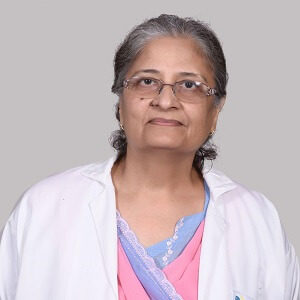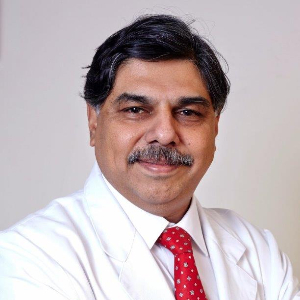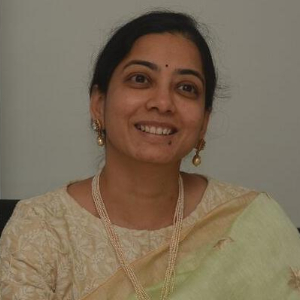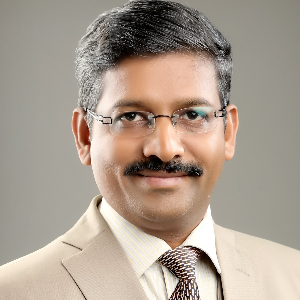Best Doctors in India for Pap Smear Test
- Obstetrician & Gynecologist; Gurugram, India
- Over 20 years’ experience
Profile Highlights:
- Deepa Maheshwari is a Gold medalist gynecologist and obstetrician in Delhi NCR, having more than two decades of experience in assisting Gynae patients.
- The doctor specializes in infertility estimation and management, Antenatal Care, High-Risk Pregnancy, PCOD/PCOS Treatment, Maternal Care, and Prenatal checkup.
- Gynecologist, Gynae-Oncologist, Gurugram, India
- Over 18 years’ experience
Profile Highlights:
- Dr. Dimple K Ahluwalia is one of the prominent Gynae-oncologists at Medanta-The Medicity at Gurugram in India.
- She has years of experience in treating serious and critically ill patients from different parts of the country.
- She has won numerous awards and honors for her countless contributions to the field of medicine.
- IVF Specialist & Gynaecologist, Chennai, India
- Over 10 years’ experience
Profile Highlights:
- Dr. Erika Patel is a Consultant of Gynecology & Obstetrics in Chennai with experience in infertility treatment and ART.
- With several years of experience in the management of infertility and training in IVF, Dr. Patel works with the goal of making IVF and assisted reproduction highly successful in India.
- She has helped several couples in conceiving a baby without compromising on the quality and by following strict ethical conduct while maintaining complete transparency during the entire process.
- Obstetrician & Gynaecologist, New Delhi, India
- Over 30 years’ experience
Profile Highlights:
- With around 30 years of experience, Dr Geeta Chadha is one of the leading gynecologists in Delhi. She has worked at Indraprastha Apollo Hospitals for around 22 years. Earlier she worked as a gynecologist at Kolmet Hospital as well as Sharma Nursing Home in New Delhi.
- Dr. Geeta Chadha has multiple expertise such as minimally invasive surgery like organ-preserving in women with benign gynae conditions plus infertility and high-risk obstetrics.
- Obstetrician & Gynaecologist, New Delhi, India
- Over 40 years’ experience
Profile Highlights:
- Dr. Harmeet Malhotra is one of the best gynecologists in India to consult all major and complex gynecological surgeries, uterine bleeding, and cervical cerclage; in addition to the women’s general health checkups.
- Dr. Malhotra specializes in vaginal, abdominal, and Laparoscopic surgeries, as well as Hysteroscopy. She had her first Hysteroscopic surgery at Apollo Hospitals in New Delhi.
- IVF Specialist & Gynaecologist, Gurugram, India
- Over 35 years’ experience
Profile Highlights:
- Dr. Hrishikesh Pai is a highly accomplished gynecologist and obstetrician in India and a leading IVF specialist in the country.
- He has set up several IVF centers all across the country and is associated with several hospitals as the head of the IVF department in collaboration with Bloom IVF Group.
- Dr. Hrishikesh Pai started the first Assisted Laser Hatching unit as well as the first micromanipulation procedure at Bloom IVF. He also introduced several other fertility treatment procedures and services such as Oocyte freezing and ovarian tissue freezing for patients with cancer.
- He holds an extensive experience of 35+ years in the field of IVF and fertility treatment and has helped hundreds of couples conceive and start a family.
- IVF Expert & Gynecologist, New Delhi, India
- Over 20 years’ experience
Profile Highlights:
- Dr. Kaberi Banerjee is a renowned Gynecologist in Delhi and one of leading infertility and IVF specialists in India.
- Along with her team of embryologists and experts, Dr. Banerjee has helped in over 10000 pregnancies through ART (Assisted reproductive techniques).
- She received her training in IVF and fertility treatment from the renowned Guys and St Thomas Hospital in London and also served as the Clinical Fellow at the Hospital for a year.
- IVF Specialist & Gynaecologist, Hyderabad, India
- Over 10 years’ experience
Profile Highlights:
- Dr. Lakshmi Chirumamilla is a Gynecologist and Obstetrician based out of Hyderabad and specializes in all types of Assisted Reproductive Techniques (ART).
- She has been part of various infertility clinics in the UK as an Infertility Specialist and is also a trainer for assisted reproduction, IUI, embryo transfer, and the management of infertile couples accredited by British Fertility Society.
- Dr. Chirumamilla has completed her certificate courses in assisted reproduction and infertility under the aegis of the British Fertility Society as well as the Royal College of Obstetricians and Gynecologists.
- Obstetrician & Gynaecologist, New Delhi, India
- Over 39 years’ experience
Profile Highlights:
- Dr. Madhu Roy is one of the leading Gynecologists and Obstetricians in India, practicing successfully for about 39 years. Dr. Roy practices at Indraprastha Apollo Hospital as a Senior Consultant.
- She assists patients by treating Uterine Fibroids, ovarian cysts, Endometriosis, Robotic Surgery, Subfertility, Pelvic Organ Prolapse, Gynecological Cancers, and any other conditions with her experience.
- Dr. Madhu Roy also provides counseling on contraception, medical termination of pregnancy, biopsies, laparoscopic surgery, and fertility preservation procedures.
- IVF Specialist & Gynaecologist, Bengaluru, India
- Over 20 years’ experience
Profile Highlights:
- Dr. Mahesh Koregol is a well-known gynecologist and obstetrician in Bengaluru with extensive knowledge and expertise in infertility treatment and Reproductive medicine.
- He provides infertility treatment for both male and female patients that includes IVF, IUI, ICSI, TESA, PESA, sperm analysis, etc.
Best Hospitals in India for Pap Smear Test
Rela Hospital, Chennai
- City: Chennai, India
Hospital Highlights:
- RIMC is a multi-specialty hospital in a sprawling area of 36 acres located in Chromepet, Chennai, Tamil Nadu, India.
- The facility has 450 beds including 130 critical care beds, 9 operating rooms, modern reference laboratories and radiology services, and is conveniently located near road, rail and air transportation.
- RIMC is led and managed by world-renowned physicians committed to healthcare.
- RIMC offers the broadest range of clinical care, education, and research. The hospital offers state-of-the-art technology and modern treatment facilities designed to provide health care at an affordable cost.
- Rela Institute is driven by patient needs, comfort and confidence.
CARE Hospitals, Hyderabad
- City: Hyderabad, India
Hospital Highlights:
- CARE Hospitals were established in the year 2000, by CARE Group.
- The multispecialty hospital has 435 beds, including 120 critical care beds, with an annual inflow of 180000 outpatients and 16,000 in-patients.
- The hospital provides specialty medical services in Cardiology, Cardiothoracic Surgery, Pediatric Cardiology, Pediatric Cardiothoracic Surgery, Neurology, Neurosurgery, Nephrology, and Urology.
- The hospital has the first dual source, 128 slice CT scanner (for high precision cardiac imaging) – the first of its kind in south India.
- The hospital offers a wide range of accommodation facilities for the convenience of its varied patient base, ranging from general wards to super deluxe rooms.
Fortis Hiranandani Hospital, Mumbai
- City: Mumbai, India
Hospital Highlights:
- Fortis Hiranandani hospital was established in 2007.
- The hospital is an advanced tertiary care, multi-specialty hospital equipped with 149 beds.
- The hospital is equipped with a super ICU to provide emergency medical care to critically ill patients.
- The hospital is NABH accredited.
- The critical care facility in the hospital is augmented with the state-of-the-art facilities that facilitate speedier diagnosis and efficient monitoring.
- The hospital provides specialty medical services in cardiology, orthopedic science, pediatric science, neurology, diabetic care, urology, nephrology, ENT, obstetrics, gynecology, cosmetic surgery, bariatric surgery, neuro and spine care.
Fortis Hospital, Anandpur, Kolkata
- City: Kolkata, India
Hospital Highlights:
- Fortis Hospital, Anandapur, Kolkata is a world-class super-speciality equipped with the latest technologies in the medical world.
- The hospital is NABH accredited.
- This state-of-the-art facility specializes in cardiology and cardiac surgery, urology, nephrology, neurosciences, orthopaedics, digestive care, emergency care and critical care.
- The hospital, governed by integrated Building Management System (IBMS), has a pneumatic chute system, for quick vertical and horizontal transportation between floors, facilitating speedy transfer of patient specimens, documents, reports, and medicines to the concerned departments.
- The hospital also has a nephrology department with over 28 advanced dialysis units.
Fortis Hospital Banerghatta, Bengaluru
- City: Bengaluru, India
Hospital Highlights:
- Fortis Hospital Bannerghatta, Bengaluru was established in 2006.
- The hospital is a 276 bedded multi-specialty tertiary care facility.
- The hospital specializes in cutting-edge medical technology and dedicated patient care services.
- The hospital is equipped with state-of-the-art technologies like trans-radial angioplasty, trans-abdominal cardiac surgery, and computerized TKR navigation surgery.
- The hospital provides specialty medical services in cardiology, cardiac surgery, orthopedics, neurology, neuro-surgery, GI, and Minimal Access Surgery (MAS).
Gleneagles Global Hospital, Parel, Mumbai
- City: Mumbai, India
Hospital Highlights:
- Gleneagles Global Hospital The 450-bed facility comprises of 17-stories, housing state-of-the-art infrastructure, and advanced medical care facilities.
- The hospital offers end-to-end clinical, surgical, and diagnostic services. It is equipped with a team of eminent medical professionals aided by qualified nurses and medical staff
- The Hospital offers advanced Endoscopic procedures, Hepatobiliary and Liver Surgeries, Surgical and Medical Gastroenterology, Bariatric Surgery, and Robotic surgery.
- The hospital is a center of excellence for Orthopedics, Joint Replacement, Knee Replacement, and Hip Replacement surgery.
Manipal Hospital, Dwarka, Delhi
- City: New Delhi, India
Hospital Highlights:
- Manipal Hospitals, Dwarka, is a super-specialty hospital in Dwarka, New Delhi, which is a part of Manipal Hospitals Group.
- The hospital aims to provide the best treatment on par with international standards at a fraction of the cost.
- Equipped with 380 beds, the hospital is also one of the new age hospitals which are equipped fully with state-of-the-art infrastructure, cutting-edge technology as well as the latest and advanced clinical practices. The hospital also has 13 modular Operation theatres with 118 beds which are solely meant for critical care.
- The hospital comprises internationally acclaimed doctors and highly professional and experienced hospital and medical staff who are able to provide preventive, therapeutic, and diagnostic services all under one roof.
Paras Hospital, Gurugram
- City: Gurugram, India
Hospital Highlights:
- Paras hospital was established in 2006 and is the 250 bedded flagship hospital of Paras Healthcare.
- The is supported by a team of doctors of international and national repute.
- The hospital is NABH accredited and also the first hospital in the region to have a NABL accredited laboratory.
- The hospital provides specialty medical services in around 55 departments including Neurosciences, Joint Replacement, Mother & Child Care, Minimal Invasive Surgery, Gynecology and Obstetrics, Ophthalmology, Dermatology, Endocrinology, Rheumatology, Cosmetic and Plastic surgery.
- The hospital is equipped with state-of-the-art technologies.
S L Raheja Hospital, Mahim, Mumbai
- City: Mumbai, India
Hospital Highlights:
- SL Raheja hospital is a 140-bed multi-specialty tertiary care hospital that is being managed by Fortis Healthcare Ltd.
- The hospital is a benchmark in healthcare and medical facilities in the neighborhood of Mahim & the western suburbs.
- L.Raheja Hospital, Mahim has one of the most effective ICU and Casualty care services.
- The hospital provides specialty medical services in Cardiology, Oncology, Neurology, Orthopedics, Mother & Child Care, and in Diabetes.
Wockhardt Hospitals, Mumbai
- City: Mumbai, India
Hospital Highlights:
- Wockhardt Hospitals were established in the year 1973, originally called First Hospitals and Heart Institute.
- Wockhardt Hospitals are super specialty health care networks in India, nurtured by Wockhardt Ltd, India’s 5th largest Pharmaceutical and Healthcare company.
- Wockhardt Hospitals is associated with Partners Harvard Medical International, an international arm of Harvard Medical School, USA.
- Wockhardt Heart Hospital performed India’s first endoscopic heart surgery.
- The hospital has a state-of-the-art infrastructure equipped with the latest technologies and modern equipment.
- It has special Centers of Excellence dedicated to the major specialties to provide hassle-free and high-quality clinical care.
Pap Smear
Pap smear also termed as Pap test, is a procedure for testing cervical cancer in women. It involves collecting cells from the cervix, which is the lower narrow end of the uterus, which lies at the top of the vagina.
Detecting the cancer early on, with a Pap smear, gives one a greater chance of curing it. This procedure can also detect changes in your cervical cells that may suggest cancer developing in the near future. A Pap smear can easily help you detect any abnormal cells, which is your first step in stopping the possible development of cervical cancer.
Purpose
The purpose of Pap smear is to screen for cervical cancer.
Regular Pap smears are recommended for women every three years from the age of 21. For women who are HIV-positive or those having a weakened immune system from chemotherapy or organ transplant, it is needed more frequently.
This procedure is usually done in conjunction with a pelvic exam. For women who are older than the age of 30, the Pap test can be combined with a test for human Papillomavirus (HPV) – a common sexually transmitted infection that can lead to cause cervical cancer. The HPV test may be done instead of a Pap smear in a few cases.
Women who are aged 30 and older may consider Pap testing every five years if the procedure is combined with HPV testing. Or they can also consider HPV testing instead of the Pap test.
Your doctor may recommend more frequent Pap smears, regardless of your age, if you have certain risk factors such as:
- A Pap smear that showed precancerous cells or a diagnosis of cervical cancer
- HIV infection
- Exposure to diethylstilbestrol (DES) before birth
- A history of smoking
- Weakened immune system due to chemotherapy, organ transplant or chronic corticosteroid use
You should discuss the benefits and risks of Pap smears with your doctor and decide what’s best for you based on your risk factors.
There are certain situations in which a woman and her doctor can end Pap testing such as:
After a total hysterectomy: After a total hysterectomy, surgical removal of the uterus including the cervix, you can ask your doctor if undergoing Pap smears is still required.
You will likely be able to discontinue Pap smears, if your hysterectomy was performed for a noncancerous condition, such as uterine fibroids.
However, if your hysterectomy was for a precancerous or cancerous condition of the cervix, it is likely that your doctor will recommend continuing routine Pap testing.
Older age: It is generally agreed by doctors that women can choose to consider stopping routine Pap testing at the age of 65 if their previous tests for cervical cancer have been negative.
You can discuss your options with your doctor and together you will be able to decide what’s best for you based on your risk factors. Your doctor might recommend you to continue with the tests if you are sexually active.
Preparation
You should follow these tips prior to your test for ensuring that your Pap smear is most effective:
- Avoid intercourse, douching as well as any vaginal medicines or spermicidal foams, creams or jellies for a minimum of two days before the Pap smear, as these may cause abnormal cells to be obscured or washed away.
- It is better if you don’t schedule your Pap smear during your menstrual period.
During the Procedure
A Pap smear can be performed in a doctor’s office and it takes just a few minutes. You might be asked to fully undress or only from the waist down. You will need to lie down on your back on an exam table with your knees bent.
First, your doctor will be gently inserting an instrument called a speculum into the vagina. This holds the walls of your vagina apart so that your doctor is easily able to see your cervix. You might experience a sensation of pressure in the pelvic area while the speculum is being inserted.
Then your doctor will need to take samples of your cervical cells with the use of a soft brush and a flat scraping device which is called a spatula. This usually does not hurt.
After the Procedure
After the procedure is complete, you can resume your normal activities without any restrictions.
Depending on the type of procedure you’re undergoing, your doctor will transfer the cell sample collected from your cervix into a container that holds a special liquid to preserve the sample. He/she might also use a glass slide.
Then the samples are transferred to a laboratory where they are examined under a microscope in order to look for characteristics in the cells which can indicate cancer or a precancerous condition.
After this, the samples are transferred to a laboratory. Here they are examined under a microscope to look for characteristics in the cell that can indicate cancer or a precancerous condition.
You can ask your doctor regarding how long you will need to wait before the results of your test are out.
Results
The results of your Pap smear can either be normal or abnormal.
Normal Pap smear- If the results are normal, this means that there were no abnormal cells identified. The normal result is also termed as negative. If your result is normal, you won’t be needing this test again for at least three years again.
Abnormal Pap smear- However, if the test results are abnormal, you need not worry, as this doesn’t necessarily mean that you have cancer. It just means that there are cells in your cervix which are abnormal and some of them may be precancerous.
Abnormal cells are of several levels:
- atypia
- mild
- moderate
- severe dysplasia
- carcinoma in situ
Milder abnormal cells are generally more common as compared to severe abnormalities.
Depending on your results, your doctor might recommend:
- increasing the frequency of your Pap smears
- getting a closer look at your cervical tissue using a procedure termed as Colposcopy
During a colposcopy exam, your doctor will take the help of light and use magnification to see the vaginal and cervical tissues more clearly. In some cases, they can also take a sample of your cervical tissue in a procedure termed as a biopsy.






















